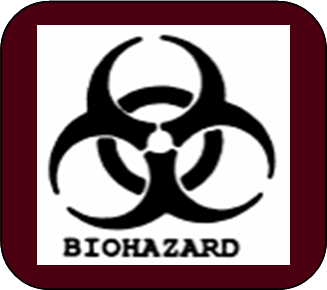Institutional Biosafety Committee (IBC)
What is Institutional Biosafety at Missouri State University?
The Institutional Biosafety Committee (IBC):
- Reviews proposed research involving recombinant DNA techniques and other biohazards (i.e., infectious or venomous agents);
- Consults with researchers on biosafety procedures;
- Trains faculty, staff, and students involved in biohazardous research to obtain compliance with appropriate rules;
- Maintains liaison with biosafety personnel at state and federal agencies, industries, and other universities; and
 Missouri State University Environmental Management website seeks to present detailed
information on standard operating procedures in dealing with hazardous materials.
The first website links to the Operating Procedures section – linking to bio-waste, hazardous waste, hazardous materials, water pollution,
spill response and more.
Missouri State University Environmental Management website seeks to present detailed
information on standard operating procedures in dealing with hazardous materials.
The first website links to the Operating Procedures section – linking to bio-waste, hazardous waste, hazardous materials, water pollution,
spill response and more.
If your research involves any of the list below, you need to fill out a Memorandum of Understanding and Agreement. IBC will review MUA(s) as they are presented. Meetings will be organized according to need. Work on teaching or research protocols cannot begin until IBC approval has been given. Ongoing protocols need to be reviewed/revised every two years. Completed MUA(s) and certificates needed for Graduate College on Brightspace should contact Johnna Pedersen or ResearchAdministration@MissouriState.edu
NEW** All IBC protocol participants must fill out a Risk Assessment form and be in Missouri State University Animal and Biological Occupational Health and Safety Program.
Missouri state researchers may need IBC approval if their research involves
- In vitro construction and/or propagation of recombinant DNA molecules
- Formation of RDNAs containing genes for the biosynthesis of toxic molecules
- Deliberate release into environment of any organism containing RDNA
- Deliberate transfer of a drug-resistance trait in microorganisms not known to acquire it naturally
- Cultivation or release of a pest of plants
- Transformation of whole plants
- Experiments with organisms of demonstrated human or animal pathogenicity
- Infection of animals
- Experiments on cancer-causing animal viruses
- Studies involving the laboratory culture of human or other primate tissues or cells
- Cultivation or release of non-indigenous species of plants or animals
- Experiments containing any human blood, blood components, or any body fluids (saliva, feces, spinal fluid, other potentially infectious materials, etc.)
- Biosafety level 2 or above organisms
IBC follows the NIH Guidelines concerning recombinant and synthetic nucleic acid which can be found at https://osp.od.nih.gov/wp-content/uploads/2019_NIH_Guidelines.htm. Please also review the "exempt experiments" found in Section III-F of the NIH Guidelines. Contact the Office of Research Administration if you have questions about whether your research needs IBC approval!
Other resources